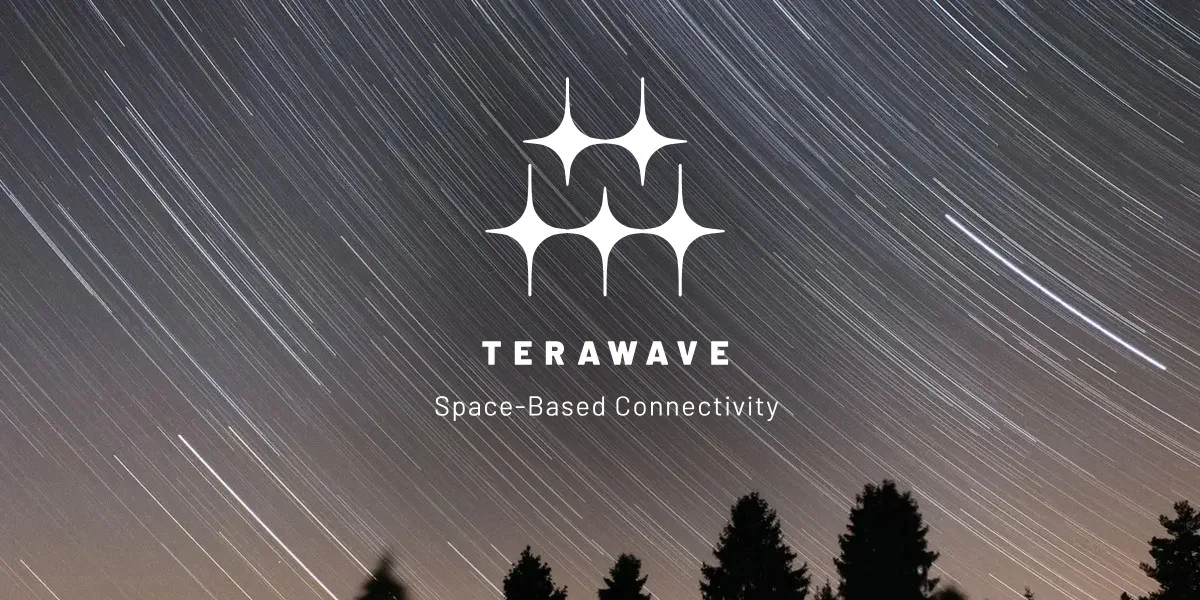Logos Space to Build Low-Earth Orbit Constellation
New satellite startup is focusing on secure communications for military and enterprise customers
Nov 9, 2024 | Share
News
Logos Space, a new satellite startup founded by former Google and SpaceX executives, has filed paperwork with the FCC to begin building its own low-Earth orbit (LEO) satellite constellation, similar to SpaceX’s Starlink and Amazon’s upcoming Project Kuiper.
The company plans to focus its efforts on providing secure, resilient communications for government, military, and enterprise clients. Although it has no plans to provide residential internet plans, its services will be available for airlines and other third parties that provide Wi-Fi to their customers.
Are you looking for an internet provider that offers fast, secure connections?
Enter your zip code below to see what options are available in your location.
A new player in the LEO race
On Oct. 30, Logos Space filed an application with the FCC to construct its own LEO satellite constellation. The proposed constellation will consist of 3,960 satellites that will be deployed in three phases. The first phase will focus primarily on enterprise business customers with additional capacity added in the second and third phases.
The company was founded by Milo Medin, former vice president of Wireless Services for Google, and Rama Akella, a veteran of both SpaceX and Project Kuiper.
Specialized technology for secure transmissions
Logos Space plans to differentiate itself from other LEO satellite operators by focusing on secure connections and resistance to electronic warfare. In addition to operating in the Ka-band of radio frequencies, which many communication satellites use, Logos says that its satellites will also operate in the much higher frequency Q-, V-, and E-bands.
Logos plans to offer closed connections between different sites, essentially creating a private satellite network that isn’t connected to the internet, thus creating an incredibly secure connection that malicious actors would be unable to attack over a normal internet connection. It will also be able to provide internet transit for companies like airlines that want to provide internet access to their customers.
The company also claims that its satellites will use narrow beams at high elevation angles designed to operate in a contested spectrum environment and minimize interference. This, combined with its high frequency signals, will purportedly allow for a satellite signal that can cut through both normal radio interference and intentional jamming while delivering multi-gigabit speeds.
While Logos is yet another player in an increasingly crowded market, it is clearly focusing its sights on securing lucrative military contracts, which is a pretty solid strategy. According to Sandra Erwin of SpaceNews, the U.S. Department of Defense is increasing its budget for satellite-based services more than tenfold, from $900 million to $13 billion.
What does this mean for internet users?
Similarly to LEO satellite providers like OneWeb, Logos has no plans to offer residential internet plans directly to consumers. Nor does it seem like they’ll have offerings tailored to fit small businesses. However, its multi-gigabit speeds could mean faster internet speeds for airlines and maritime travel.
Apart from that, most internet users will only be impacted by the launch of Logos indirectly as it puts pressure on other LEO satellite services and competes for space on satellite launches. These impacts will be pretty minimal, but it will be interesting to see how this will shape the launch of upcoming constellations like Project Kuiper and the continuing development of Starlink.
Author - Peter Christiansen
Peter Christiansen writes about telecom policy, communications infrastructure, satellite internet, and rural connectivity for HighSpeedInternet.com. Peter holds a PhD in communication from the University of Utah and has been working in tech for over 15 years as a computer programmer, game developer, filmmaker, and writer. His writing has been praised by outlets like Wired, Digital Humanities Now, and the New Statesman.
Editor - Jessica Brooksby
Jessica loves bringing her passion for the written word and her love of tech into one space at HighSpeedInternet.com. She works with the team’s writers to revise strong, user-focused content so every reader can find the tech that works for them. Jessica has a bachelor’s degree in English from Utah Valley University and seven years of creative and editorial experience. Outside of work, she spends her time gaming, reading, painting, and buying an excessive amount of Legend of Zelda merchandise.



